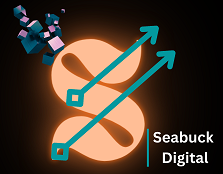
Why SEO is Crucial for SaaS Startups
Organic Traffic Equals Sustainable Growth
When you’re one of the SaaS startups, you need users—fast. But paid ads burn money quickly. SEO gives you organic traffic that doesn’t dry up when your ad budget does. Once your pages rank, they bring in leads 24/7 without you lifting a finger.
Lower CAC (Customer Acquisition Cost) Through SEO
SEO isn’t just free—it’s cost-effective. Compared to PPC, SEO drastically reduces your customer acquisition cost. You’re investing in assets (content, site architecture) that pay off long-term.
Building Trust and Brand Authority
Ranking on Google builds credibility. If you’re on the first page, users automatically trust your brand more. It’s like getting the VIP pass in the SaaS world.
Understanding the SEO Basics for SaaS
What Makes SaaS SEO Unique?
SaaS SEO isn’t like eCommerce or local business SEO. You’re often targeting B2B buyers, dealing with long sales cycles, and optimizing for both features and use cases. Your SEO game needs to be both strategic and technical.
Key SEO Terms Every SaaS Founder Should Know
Don’t worry, no jargon bombs here. Just a few essentials:
- Keyword Difficulty: How hard it is to rank for a keyword.
- CTR (Click-Through Rate): Percentage of users who click your link.
- Backlinks: Links from other sites that tell Google, “You’re legit!”
Technical vs. Content SEO
Think of technical SEO as your website’s engine and content SEO as the fuel. You need both running smoothly to race ahead of competitors.
Setting Up an SEO Foundation Without Spending a Fortune
Free SEO Tools Every Startup Should Use
You don’t need Ahrefs or SEMrush right away. Start with:
- Google Search Console
- Google Analytics
- Ubersuggest
- AnswerThePublic
- Screaming Frog (Free version)
Budget-Friendly Keyword Research
You can still find golden keywords on a shoestring budget.
How to Use Google Autosuggest and People Also Ask
Just start typing a query in Google. The autosuggest box and People Also Ask sections are loaded with SEO opportunities your competitors miss.
Leveraging Forums like Reddit & Quora
See what real users are asking. These platforms are treasure troves for content ideas and keywords you won’t find in tools.
Crafting a Content Strategy That Works
Creating Bottom-of-Funnel Content
Skip the fluff and create content that converts. BOFU (Bottom of Funnel) content like comparison posts, pricing pages, and use case breakdowns help close deals.
Blogging with Purpose: Topic Clusters & Pillar Pages
Cluster content around core topics. For example:
- Pillar: Email Marketing Software for SaaS
- Cluster: Best Email Automation Tools, How to Improve SaaS Email Deliverability, etc.
Updating Old Content for Quick Wins
Already have blog posts? Refresh them with updated stats, better structure, and targeted keywords. Google loves fresh content.
On-Page SEO Tactics That Cost Nothing
Optimizing Meta Tags and Headers
Your title tag and meta description are like your shop window. Make them clickable, relevant, and keyword-rich.
Internal Linking for Better Crawling and UX
Link related pages together. It helps Google understand your site structure and keeps users on your site longer.
Schema Markup for SaaS Pages
Use JSON-LD schema to help Google understand your content better. Add FAQs, breadcrumbs, and software application schema to boost visibility.
Link Building Without Breaking the Bank
Guest Blogging and HARO (Help A Reporter Out)
Write valuable content for other websites or pitch insights to journalists. It’s free PR and backlinks.
SaaS Directory Listings
List your tool on platforms like:
- G2
- Capterra
- Product Hunt
- AlternativeTo
These listings drive backlinks and qualified traffic.
Creating Shareable Assets like Calculators or Templates
Got a free tool or template? Promote it. People love linking to helpful resources.
Technical SEO Tips on a Tight Budget
Mobile Optimization Essentials
If your site isn’t mobile-friendly, forget ranking. Use Google’s Mobile-Friendly Test to see where you stand.
Improve Page Speed for Free
Use tools like PageSpeed Insights and TinyPNG. Compress images, use lazy loading, and ditch unnecessary scripts.
Use a Free SEO Audit Tool Regularly
Screaming Frog, Ahrefs Webmaster Tools, or Sitechecker can highlight issues for free. Fix broken links, redirects, and duplicate content fast.
Measuring What Matters: Tracking SEO Progress
Setting Up Google Analytics & Search Console
These are your free mission control centers. Track traffic, behavior, impressions, and more.
Important SaaS SEO KPIs
- Organic traffic
- Signups from organic
- Keyword rankings
- Bounce rate
- DA (Domain Authority)
Free Tools to Track Rankings
Try:
- Google Search Console
- Ubersuggest’s daily tracking
- Serprobot
Leveraging Social Proof and Reviews for SEO
Encouraging Reviews on G2, Capterra, etc.
Good reviews drive trust and improve your listings on high-authority platforms.
Embedding Reviews on Landing Pages
Use review widgets or screenshots directly on your homepage and feature pages. They boost conversions and time on page.
Scaling SEO Efforts as Revenue Grows
When to Start Hiring or Outsourcing
Once you’ve validated your strategy, consider bringing in:
- A freelance content writer
- A technical SEO consultant
- A link-building agency (only if they’re legit)
Investing in Premium Tools Wisely
Start small. Ahrefs, SEMrush, and Surfer SEO are great but expensive. Use trials or monthly plans only when needed.
Common SEO Mistakes SaaS Startups Should Avoid
Ignoring User Intent
Ranking is useless if users bounce. Understand what they really want from the keyword.
Targeting the Wrong Keywords
Don’t go after broad terms like “CRM” or “SaaS software.” Be specific—think “CRM for real estate agents.”
Neglecting Technical SEO
Your site may look pretty, but if search engines can’t crawl it, it won’t rank.
Final Tips for SEO Success on a Budget
- Be patient. SEO is a marathon, not a sprint.
- Focus on user-first content.
- Build relationships, not just links.
- Prioritize based on effort vs. ROI.
Conclusion
You don’t need a six-figure marketing budget to win in SEO as a SaaS startup. With the right mix of smart strategy, free tools, optimization planning and consistent effort, you can build a strong organic presence that brings traffic, leads, and revenue. Start small, iterate fast, and scale wisely.
FAQs
How long does it take for SEO to show results for a SaaS startup?
Typically, 3 to 6 months. But you can see faster wins by updating old content and targeting long-tail keywords.
Is blogging still effective for SaaS SEO in 2025?
Absolutely! Blogging with intent—especially BOFU content—is one of the best ways to drive targeted traffic and signups.
What’s the best free SEO tool for SaaS companies?
Google Search Console is hands down the best starting point. Pair it with Ubersuggest and Screaming Frog for extra firepower.
Can social media help my SEO efforts?
Yes, indirectly. It helps you promote content, earn backlinks, and build brand awareness that boosts search visibility.
How many blog posts should a SaaS startup publish per month?
Aim for at least 4–6 quality posts. Focus more on value and keyword intent than sheer volume.
Read More:

